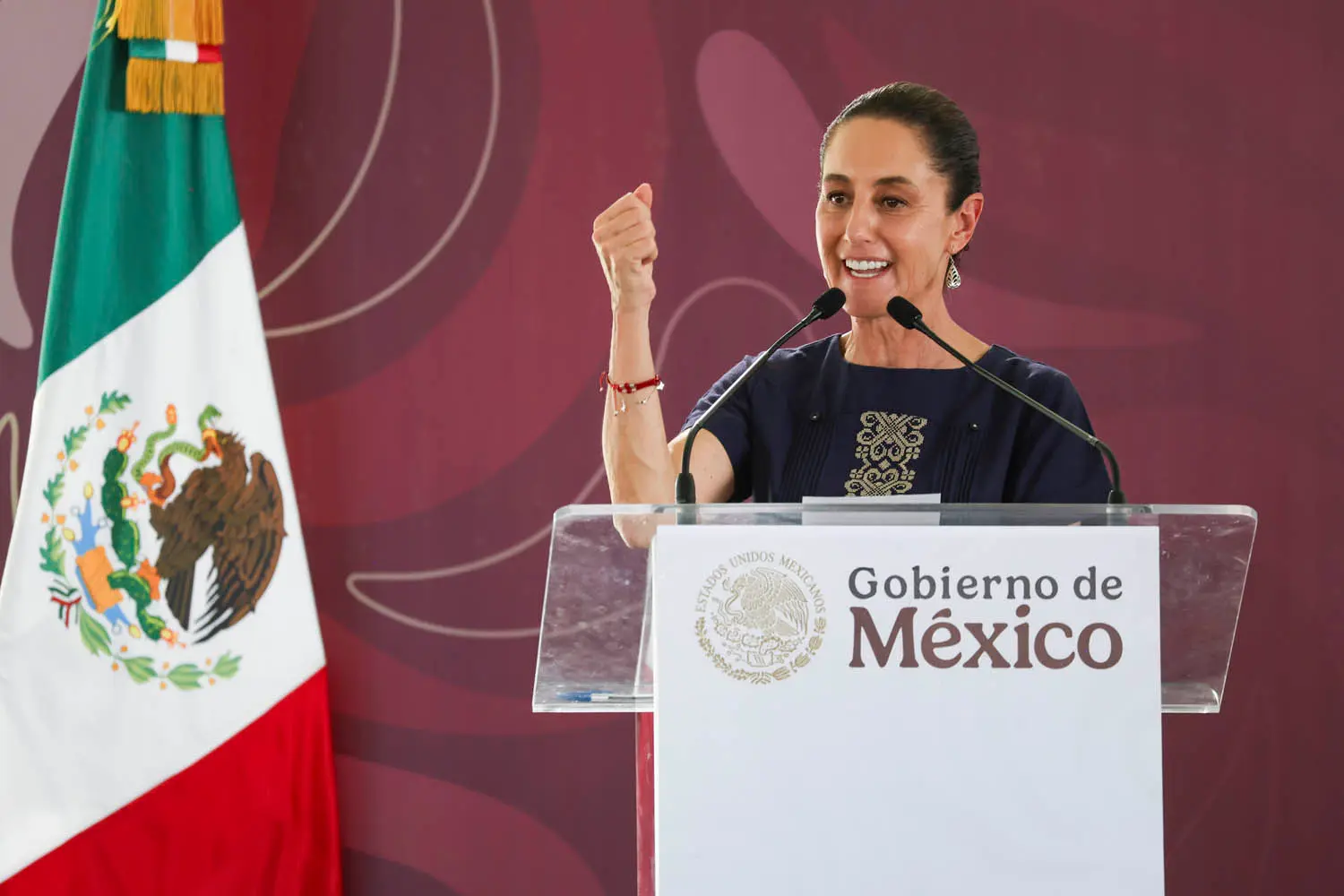
President Claudia Sheinbaum Pardo announced that the Mexican Government will implement a reimbursement program to offset the 1% tax the United States plans to apply to cash remittances, as part of a bill soon to be voted on by the U.S. Senate.
Sheinbaum welcomed the move that, thanks to pressure from the migrant community, resulted in the originally proposed 5% tax being reduced to 3.5% and then significantly cut to 1%.
“Finally, in the U.S. Senate’s bill, there are very important achievements. Only a 1% tax remains for remittances sent in cash,” Sheinbaum explained. She also clarified that remittances sent via electronic transfer — which account for 99.1% of the total — will not be subject to any tax, offering reassurance to millions of Mexican families who rely on these funds.
Reimbursement via Finabien
The President announced that this Friday a special program will be unveiled through the Financiera para el Bienestar (Finabien) card, through which the federal government will cover the additional 1% tax charged to migrants who choose to send money in cash.
“For those who send cash, we will announce a special program to reimburse that 1%,” she stated.
The aim is to ensure that recipient families in Mexico do not receive less due to the new tax, while also promoting financial inclusion through the government’s official platforms.
A Policy with Positive Binational Impact
The reduction of the remittance tax also marks progress for both countries’ economies. On the one hand, Mexico avoids a significant drop in remittance inflows, which reached a record US$64.75 billion in 2024 — surpassing revenues from oil exports and tourism. On the other hand, the United States enhances traceability of funds and strengthens its anti-money laundering policies by incentivizing electronic transfers over cash.
In addition, this shift acknowledges the vital role played by the migrant community in both economies.
“This achievement would not have been possible without the organization of our fellow countrymen who sent letters, contacted their legislators, and raised their voices to protect their families’ income,” Sheinbaum emphasized.
The original U.S. initiative aimed to impose a higher tax on all remittances sent abroad, under the premise of funding domestic immigration policies. However, various stakeholders — including economists, human rights advocates, and migrant organizations — warned that such a tax would disproportionately affect vulnerable families and could drive remittance flows underground.
Currently, Mexico is the world’s top recipient of remittances, ahead of India and China, with 95% of those funds coming from Mexican migrants in the United States.
With this proactive response, President Sheinbaum’s government aims to send a clear message of support to the diaspora, reinforcing the notion that migrants are not alone. The measure also promotes the use of formal channels, which facilitates financial transparency and may lead to additional banking benefits for recipient families.
Sheinbaum concluded that, although the bill has yet to be ratified by the U.S. Senate, it represents the final version of the proposal. In anticipation of its approval, Mexico will act swiftly to protect the income of millions of households.
Related: Mexican Banking System Is Solid and Operating Normally: Finance Ministry